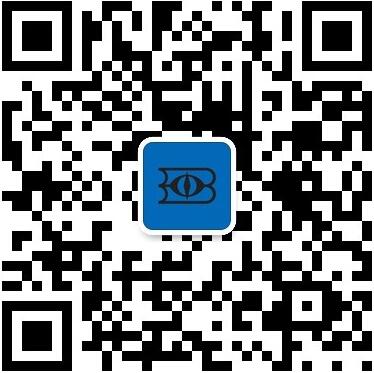The scope of this project is to define a general object-oriented information model that may be used to structure information and identify services used in point-of-care (POC) medical device communications. The scope is primarily focused on acute care medical devices and the communication of patient vital signs information.
This standard establishes minimum acceptable performance criteria for health physics instrumentation for use in ionizing radiation fields under extreme environmental conditions. Included are testing methods to establish the acceptability of each type of instrumentation. This standard does not specify which instruments or systems are required, nor does it consider the number of specific applications of such instruments. This standard supplements the basic performance requirements for health physics instrumentation as specified in ANSI N42.17A [2]. Specifications in this standard are expected to be called for by the user as required and should not be considered as general specifications.
The scope of this standard is to define an IrDA-based transport profile for medical device communication that uses short-range infrared, as a companion standard to ISO/IEEE 11073-30200, which specifies a cable connected physical layer. This standard also supports use cases consistent with industry practice for handheld personal digital assistants (PDAs) and network APs that support IrDA-infrared communication.
The scope of this standard is to define an IrDA-based transport profile for medical device communication that uses short-range infrared, as a companion standard to ISO/IEEE 11073-30200, which specifies a cable connected physical layer. This standard also supports use cases consistent with industry practice for handheld personal digital assistants (PDAs) and network APs that support IrDA-infrared communication.
This standard extends the base nomenclature provided in ISO/IEEE 11073-10101:20041 to support terminology for implantable cardiac devices. Devices within the scope of this nomenclature are implantable devices such as pacemakers, defibrillators, devices for cardiac resynchronization therapy, and implantable cardiac monitors. This nomenclature defines the discrete terms necessary to convey a clinically relevant summary of the information obtained during a device interrogation. The nomenclature extensions may be used in conjunction with other IEEE 11073 standard components (e.g., ISO/IEEE 11073-10201 [B2]2) or with other standards, such as Health Level Seven International (HL7).
This standard establishes the minimum performance criteria for health physics instrumentation for use in ionizing radiation fields. Testing methods are included to establish the acceptability of each type of instrumentation. This standard does not specify which instruments or systems are required, nor does it consider the number of specific applications of such instruments.
To support terminology for implantable cardiac devices this standard extends the base nomenclature provided in IEEE 11073. Devices within the scope of this nomenclature are implantable devices such as pacemakers, defibrillators, devices for cardiac resynchronization therapy, and implantable cardiac monitors. The discrete terms necessary to convey a clinically relevant summary of the information obtained during a device interrogation are defined in this nomenclature. To improve workflow… read more efficiencies, cardiology and electrophysiology practices require the management of summary interrogation information from all vendor devices and systems in a central system such as an Electronic Health Records (EHR) system or a device clinic management system. To address this requirement, the Implantable Device, Cardiac (IDC) Nomenclature defines a standard-based terminology for device data. The nomenclature facilitates the transfer of data from the vendor proprietary systems to the clinic EHR or device clinic management system. read less
Within the context of secure plug-and-play interoperability, cybersecurity is the process and capability of preventing unauthorized access or modification, misuse, denial of use, or the unauthorized use of information that is stored on, accessed from, or transferred to and from a PHD/PoCD. The capability part of cybersecurity is information security controls related to both digital data and the relationships to safety and usability. For PHDs/PoCDs, this standard defines a security baseline of… read more application layer cybersecurity mitigation techniques for certain use cases or for times when certain criteria are met. This standard provides a scalable information security toolbox appropriate for PHD/PoCD interfaces, which fulfills the intersection of requirements and recommendations from National Institute of Standards and Technology (NIST) and the European Network and Information Security Agency (ENISA). This standard maps to the NIST cybersecurity framework [B15]; IEC TR 80001-2-2 [B8]; and the Spoofing, Tampering, Repudiation, Information Disclosure, Denial of Service, and Elevation of Privilege (STRIDE) classification scheme. The mitigation techniques are based on the extended CIA triad (Clause 4) and are described generally to allow manufacturers to determine the most appropriate algorithms and implementations. read less
This document focuses on the application of the Ethernet family (IEEE Std 802.3-2008) of protocols for use in medical device communication. The scope is limited to referencing the appropriate Ethernet family specifications and to calling out any specific special needs or requirements of the ISO/IEEE 11073 environment, with a particular focus on easing interoperability and controlling costs.
The scope of this standard is to define an IrDA-based transport profile for medical device communication that uses short-range infrared, as a companion standard to IEEE Std 1073.3.2, which specifies a cable-connected physical layer. The proposed standard will also support use cases consistent with industry practice for handheld PDAs and network access points that support IrDA-infrared communication.
This guide provides guidance for using radio frequency (RF) wireless communication technologies for ISO/IEEE 11073 point-of-care (PoC) medical devices that exchange vital signs and other medical device information using shared information technology (IT) infrastructure. Use cases specific to these technologies are evaluated, and key functional and performance criteria are identified, including quality of service (QoS) management, privacy and security, coexistence with other RF wireless… read more technologies, environmental requirements such as electromagnetic interference and compatibility (EMI/EMC), and power management. Guidelines are provided for each of these areas. Technologies include, but are not limited to, the IEEE 802.11 and IEEE 802.15 technologies. Use case environments include traditional clinical settings as well as personal (home and mobile) healthcare. The intent of guide is to be global with respect to wireless spectrum and equipment, although working group participation and expertise have favored detail of scenarios from the United States. Importantly, this guide will not be periodically updated, but instead will act as a source of information for follow-on ISO/IEEE 11073 RF wireless transport standards that will supersede it. These ISO/IEEE 11073 RF wireless transport standards will detail the use of specific wireless networked technology for the purpose of transporting medical data. Periodic updates will be performed on the ISO/IEEE 11073 standards only. read less
This standard establishes the minimum performance criteria for portable radiation protection instrumentation for use in ionizing radiation fields under both normal and extreme environmental conditions, i.e., all environmental conditions. For the portable radiation detection instrumentation addressed in this standard, the radiological ranges for the performance tests are as follows: the dose rate range of operation taken as background to 10 Gy/h (1000 rad/h); the activity-per-unit-area range for… read more surface contamination monitors taken as 0.01 Bq/cm (60 dpm/100 cm) or 0.05 Bq/cm (300 dpm/100 cm) to 200 Bq/cm (1.2 × 10 dpm/100 cm). The testing methods verify that the performance criteria are met over the range of operating conditions for each type of instrumentation. This standard does not specify which instruments or systems are required, nor does it consider the number of specific applications of such instruments. read less
 我的标准
我的标准 购物车
购物车 400-168-0010
400-168-0010











 对不起,暂未有相关搜索结果!
对不起,暂未有相关搜索结果!













